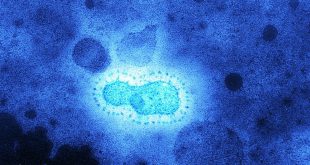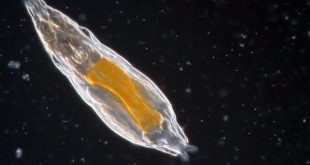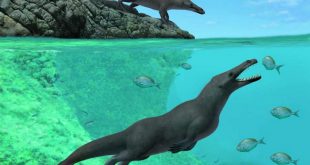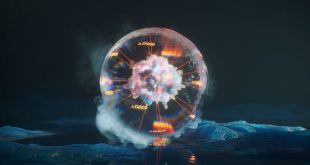Over the past two decades, coronaviruses have been responsible for three major outbreaks – SARS-CoV, MERS-CoV, and SARS-CoV-2, according to the new research findings.
Read More »A microscopic animal has been revived after slumbering in the Arctic permafrost for 24,000 years.
Bdelloid rotifers typically live in watery environments and have an incredible ability to survive. Russian scientists found the creatures in a core of frozen soil extracted from the Siberian permafrost using a drilling rig. “Our report is the hardest proof as of today that multicellular animals could withstand tens of …
Read More »Biologist: Avoid these places to protect against Covid-19
University of Massachusetts Dartmouth Biology Professor Erin Bromage explains which environments have an increased risk of spreading coronavirus.
Read More »New blood test can predict if you’ll die in the next 5 to 10 yrs.
A new type of blood test promises to predict a person’s risk of dying within the next 10 years based on over a dozen different biomarkers. With 83 percent accuracy, it’s proving far better than any existing conventional models. Researchers examined 16 years’ worth of data from 44,168 people aged …
Read More »Drone helicopter to fly on Saturn’s moon, Titan.
Nasa will fly a drone helicopter mission to cost $1bn (£800m) on Saturn’s moon, Titan, in the 2030s. The rotorcraft will visit dozens of promising locations on Titan to investigate the chemistry that could lead to life. Titan plays host to many of the chemical processes that could have sparked …
Read More »ِAncient four-legged whale discovered in Peru.
A four-legged creature that had a tail and webbed feet similar to those found on otters has been identified as an ancestor of the whale. Fossils unearthed in Peru have led scientists to conclude that the enormous creatures that traverse the planet’s oceans today are descended from small hoofed ancestors …
Read More »Solving Biology’s Mysteries Using Quantum Mechanics.
There’s a fine line between being hailed as a visionary and being denounced as a crank, as Iraq-born physicist Jim Al-Khalili is only too aware. Seated in his office at the University of Surrey in the U.K. on a sunny day, he recalls a less tranquil time in his career, …
Read More » Alghadeer TV Alghadeer TV
Alghadeer TV Alghadeer TV






